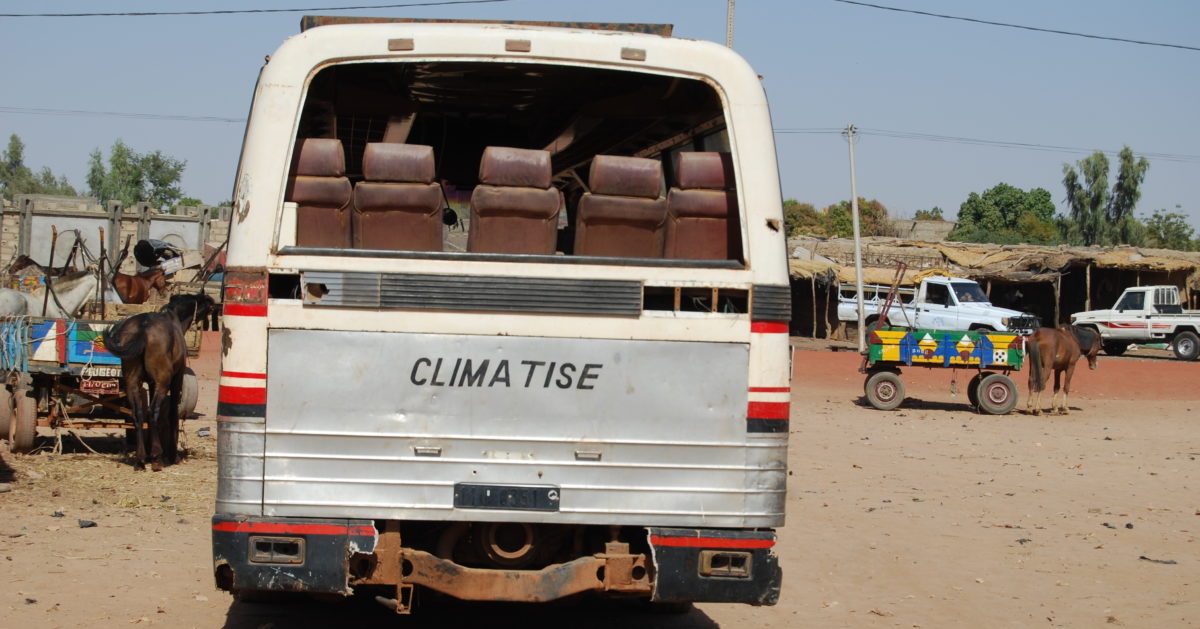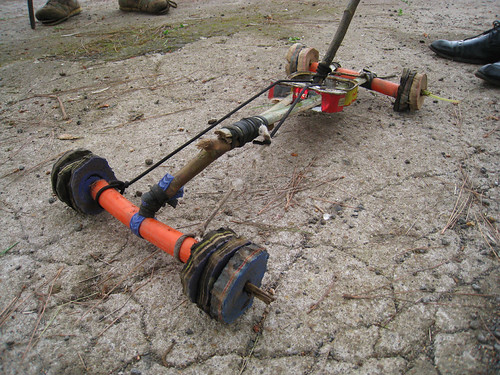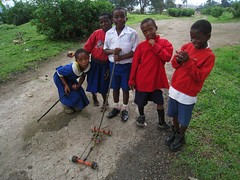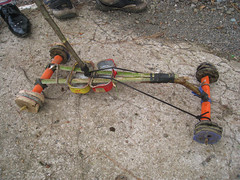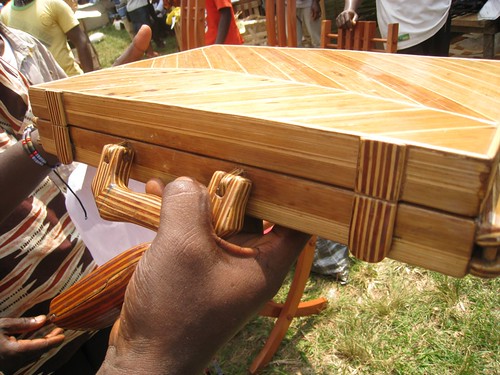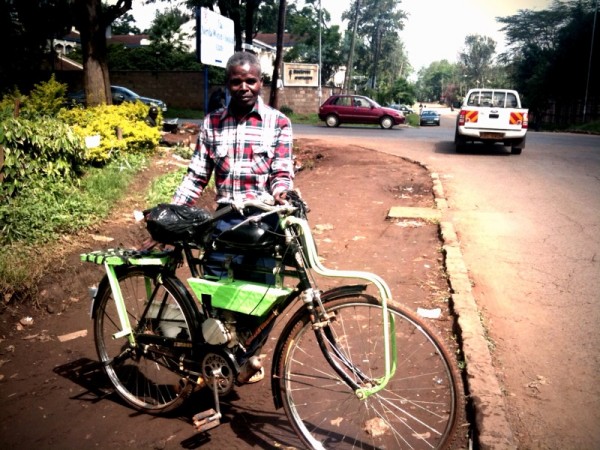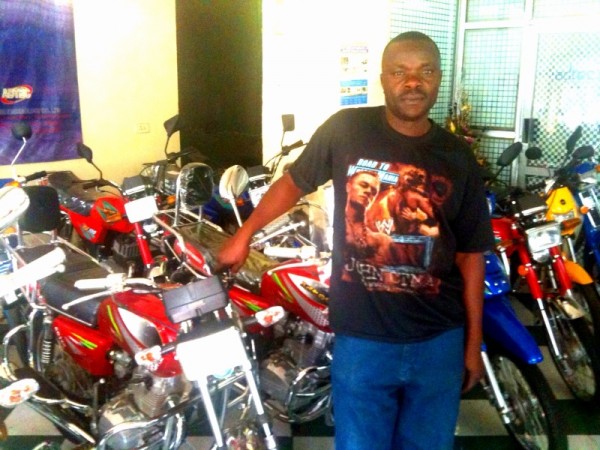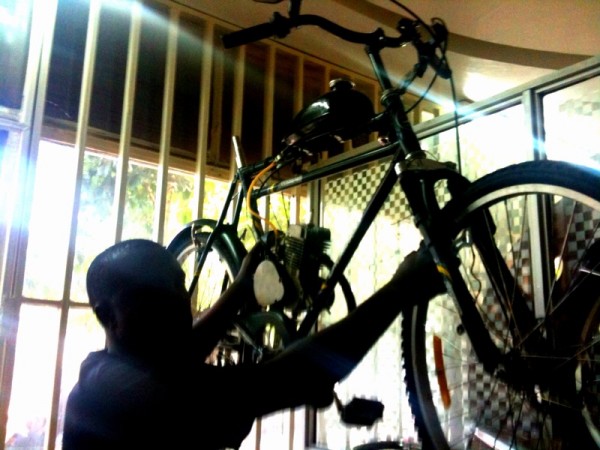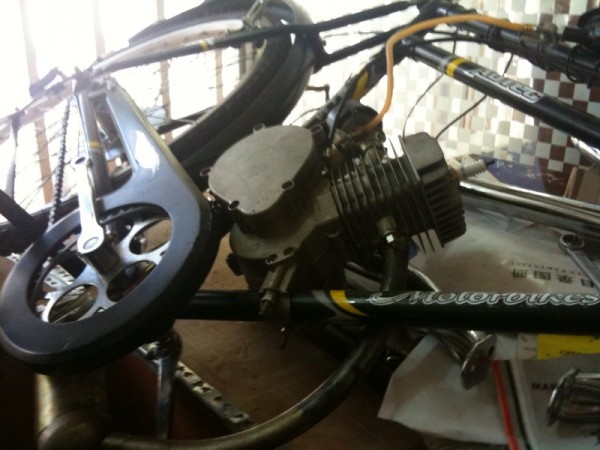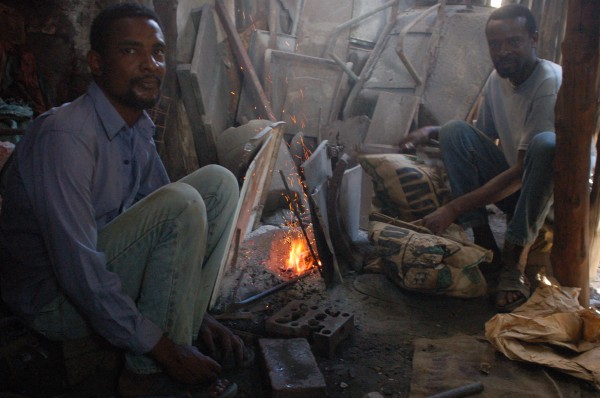Miniature versions of vehicles are as popular with kids in Cameroon as anywhere else. Adult craftsmen across the continent use materials such as wire, beads and recycled cans to create toy bicycles, trucks and airplanes—many of which transcend the level of children’s toys and are nothing short of art objects. Indeed, some of these creations are produced for corporate clients and international buyers.
No less ingenious and fascinating are toys created by and for kids themselves, usually from the simplest of materials and tools. This includes items like toy tractors (Kenya) and SUVs (Uganda) made from recycled plastic bottles.
In Cameroon, one such popular toy crafted by kids is a ‘remote controlled’ car or ATV. These are often built from discarded flip-flops (slippers), sardine tins, bamboo or raffia palm, electrical conduit (pipe), rubber and bits of string. A variation on this theme that incorporates a split bamboo steering column and a full-sized wire steering wheel was blogged by Steve in the northwest of the country.
It’s not difficult to spot toy cars like this being piloted by kids in Cameroon—the trick is usually being able to catch up with them to photograph one. A big advantage of this design is its ability to handle rough terrain when being driven at speed. The bamboo frame, chunky tires and rubber fasteners suck up bumps in the road like a 4WD Toyota. The proud builder of this R/C all-terrain vehicle paused long enough to demonstrate his creation for me.

